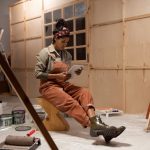In the world of interior design, the blending of vintage and modern decor is a unique balancing act. This artful mix creates an ambiance that simultaneously respects the past and embraces the present in a historical home. In this article, we will provide you with an in-depth guide on how to achieve a seamless blend of vintage-modern hybrid decor, preserving the charm of your historical home while adding a contemporary twist.
Understanding the Essence of Vintage-Modern Decor
Before diving into the planning process, it’s important to understand what vintage-modern decor entails. This design concept revolves around harmonizing elements from different eras, creating a timeless ambiance in your living space. To achieve this, you need to know how to effectively incorporate elements from both the past and the present.
Also read : How to Cultivate an Indoor Spice Garden in Limited Kitchen Space?
The Vintage Elements
Vintage style refers to decor items from the past that carry a certain charm and history. This style can span various decades, from the ornate elegance of the 1920s to the rustic charm of the ’70s. However, what distinguishes vintage items is their quality. They are often handmade, durable, and carry a story of their bygone era.
The Modern Elements
On the other hand, modern decor represents the style of the present era. It often features clean lines, minimalist design, and a neutral color palette. Modern decor can bring a refreshing simplicity and functionality to a vintage space.
Also to see : How Can You Design a Sustainable Water Garden Using Recycled Containers?
Creating a Balanced Floor Plan
The next step in creating a vintage-modern hybrid decor is crafting a balanced floor plan. This plan will serve as the blueprint for your interior design, guiding the placement of both vintage and modern items.
The Importance of Space
The space you have at your disposal plays a crucial role in your floor plan. Consider the size and arrangement of each room. How can you use the space to best highlight both the vintage and modern elements? Do you have large, spacious rooms that can accommodate heavier, more ornate vintage furniture? Or are your rooms smaller, requiring sleeker, more minimalist modern items?
Balance and Symmetry
Balance and symmetry are key factors in creating a harmonious decor. This doesn’t mean that everything must match perfectly. Rather, strive to achieve a balance between the two styles. For instance, if you have a vintage sofa, balance it with a modern coffee table or rug.
Choosing Appropriate Furniture and Decor Items
Now that you have a balanced floor plan, it’s time to choose the perfect pieces of furniture and decor. Remember: the goal is to create a seamless blend of vintage and modern.
Vintage Furniture
When selecting vintage furniture, look for pieces that have a timeless appeal. These could include items like antique cabinets, vintage armchairs, or classic dining tables. Also, consider the condition of the furniture. Vintage doesn’t mean worn-out. The furniture should be in good condition and functional, not just decorative.
Modern Furniture
For the modern elements, choose items with clean lines and neutral colors. Think contemporary sofas, minimalist coffee tables, and sleek shelving units. And remember: modern doesn’t mean cold or impersonal. Modern furniture can be as warm and inviting as vintage pieces.
Infusing Personality with Accent Pieces
Lastly, the key to achieving a successful vintage-modern hybrid decor lies in the accent pieces. These small, often overlooked details can greatly impact the overall aesthetic of your home.
Vintage Accents
Think of vintage accents as the "jewelry" of your home. These could be anything from antique mirrors and vintage lamps to old books and china. These pieces can add warmth and character to your home, giving it a unique, lived-in feel.
Modern Accents
On the flip side, modern accents can add a touch of freshness and elegance to a vintage space. Contemporary art, sleek light fixtures, or minimalist vases can be great options.
Remember: the key to achieving a successful vintage-modern hybrid decor lies in the details. By carefully considering each element — from the floor plan to the accent pieces — you can create a space that beautifully marries the charm of the past with the elegance of the present. Happy decorating!
Selecting the Right Colors for Vintage-Modern Hybrid Decor
The color scheme that you choose will be crucial in linking the vintage and modern elements of your decor, thus creating a harmonious blend. The choice of colors can either enhance the desired effect or give an effect that is quite the opposite of what you’d like to achieve.
Vintage Colors
Vintage colors tend to be inspired by nature, featuring warm hues like brown, beige, and olive green. These colors are often associated with specific eras, such as the earthy tones of the 1970s, the pastels of the 1950s, and the rich, jewel tones of the 1920s. Implementing these colors in your decor can effectively highlight your selected vintage items.
Modern Colors
In contrast, modern decor tends to favor a simpler, more minimalistic color palette. This usually features neutral shades like white, grey, and black, which can contrast beautifully with the more vibrant vintage hues. Using modern colors helps to create a clean, streamlined look in your space, providing a refreshing counterpoint to the rich colors of your vintage items.
Implementing Patterns and Textures
Patterns and textures are also key components in creating a vintage-modern hybrid decor. They can add depth and visual interest to your space, helping to further blend the vintage and modern elements of your decor.
Vintage Patterns and Textures
Vintage patterns and textures often have a handmade, crafted look, such as the intricate patterns found on vintage rugs or the rich textures of vintage upholstery. By incorporating these elements into your decor, you can further emphasize the vintage charm of your historical home.
Modern Patterns and Textures
Modern patterns and textures, on the other hand, tend to be more subtle and streamlined. Think of smooth, sleek surfaces, geometric patterns, and minimalistic designs. These modern elements can provide a crisp, clean contrast to the more ornate vintage items, helping to create a balanced, harmonious decor.
Conclusion
Planning a vintage-modern hybrid decor for a historical home is an exciting, albeit challenging, design journey. The key to success lies in creating a balance between the old and new, blending the charm of vintage items with the sleek simplicity of modern elements. By understanding the essence of vintage-modern decor, crafting a balanced floor plan, selecting appropriate furniture and accent pieces, choosing the right colors, and implementing patterns and textures, you can create a unique, timeless ambiance in your historical home. Remember, the beauty of this design concept rests in its ability to harmonize the past and the present, celebrating the charm of your historical home while also embracing the contemporary lifestyle.











